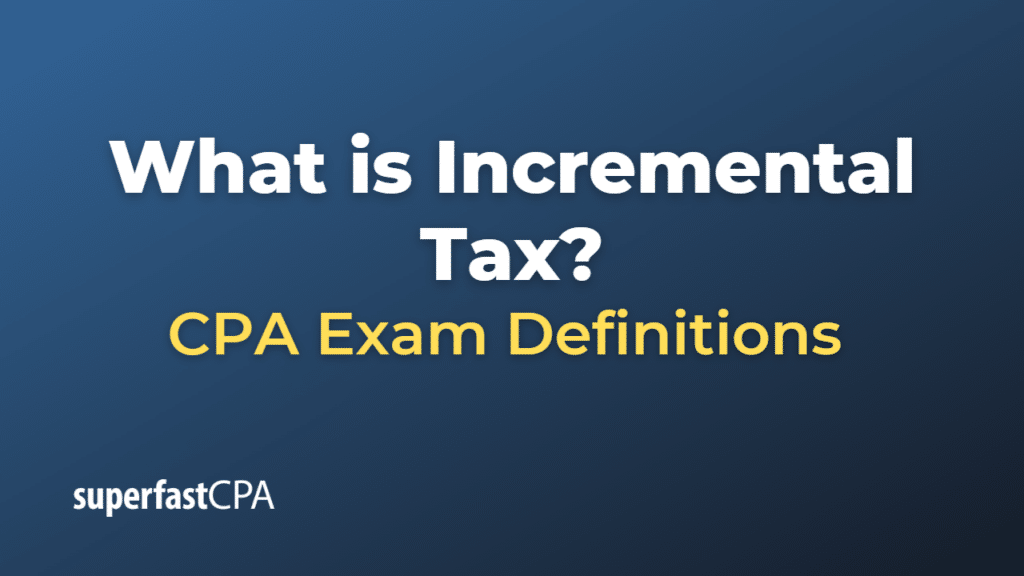Incremental Tax
Incremental tax refers to the additional tax liability a person or business incurs due to an increase in taxable income. This concept is most relevant in progressive tax systems where the tax rate increases as the taxable income increases, meaning that each additional dollar of income could be taxed at a higher rate than the previous one.
For instance, let’s say an individual lives in a country with a progressive income tax system with the following tax brackets:
- 10% on the first $10,000 of income
- 20% on income from $10,001 to $50,000
- 30% on income over $50,000
Now, imagine this individual earns $50,000 per year, placing them in the second tax bracket. Their tax liability would be calculated based on those two first brackets.
However, if they get a raise and now earn $55,000 per year, the additional $5,000 of income will be taxed at the 30% rate, not the 20% rate. This 30% tax on the additional $5,000 is the incremental tax, and it reflects the additional tax burden that results from the increase in income.
Understanding incremental tax is important for both businesses and individuals as it helps in financial planning and decision making. It’s particularly important when considering decisions that could result in higher income, such as accepting a job offer, taking on additional freelance work, or investing in income-generating assets.
Example of Incremental Tax
Suppose you live in a country that uses a progressive tax system. The tax rates are as follows:
- 10% on the first $50,000 of income
- 20% on income from $50,001 to $100,000
- 30% on income over $100,000
Now, let’s say you currently earn an annual salary of $80,000. Your tax is computed based on the first two brackets:
- Tax on the first $50,000: $50,000 * 10% = $5,000
- Tax on the next $30,000 ($80,000 – $50,000): $30,000 * 20% = $6,000
So your total tax liability is $5,000 + $6,000 = $11,000.
Now, imagine you’ve been offered a raise, and your new annual salary would be $105,000. The incremental income is $25,000 ($105,000 – $80,000).
Your tax on this incremental income is calculated as follows:
- Tax on the first $20,000 of the raise (to reach $100,000): $20,000 * 20% = $4,000
- Tax on the remaining $5,000 of the raise (over $100,000): $5,000 * 30% = $1,500
So, the incremental tax on your raise is $4,000 + $1,500 = $5,500.
In this example, the understanding of incremental tax would be important in evaluating the true net benefit of the salary raise. After considering the incremental tax, the actual increase in your take-home pay would be smaller than the gross increase in salary.













